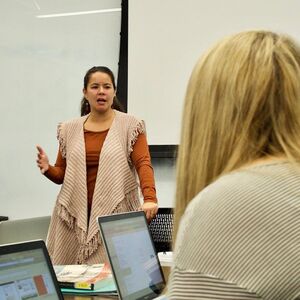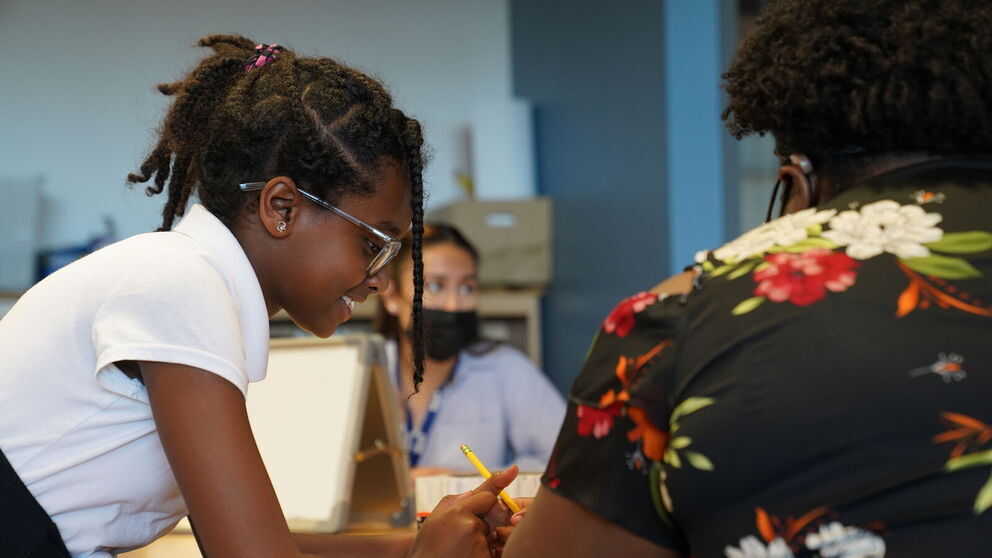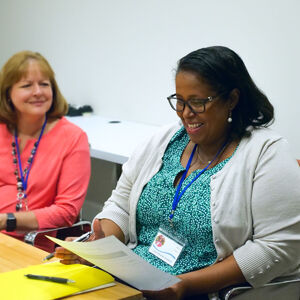
For Teachers and Teacher-Educators
We support teacher-educators to redesign learning opportunities for aspiring and early-career teachers.
Posted on
Category: Organization
When people ask me why I do what I do, Thomas Tillman comes to mind.
When we met Thomas, he was studying to be a teacher at Texas A&M Texarkana. He had come to this career later than most of his peers, starting to train to be a teacher while in his thirties. While school had come easily to him growing up, his sister had struggled, and as she continued to struggle, she began to call herself, “stupid.”
As he began to learn through his courses what it took to teach kids to read, he described a call he made to his sister:
"So as I’m learning about phonemes and segmenting and breaking things apart and how these are the basic building blocks of reading, I got excited and I called my sister. I was like, ‘Hey, listen. Remember how you used to call yourself dumb? It’s because we weren’t taught this way. They didn’t teach us in the way that is conducive to the development of a child’s brain. And once you feel like you’re behind, then you’re demotivated. You’re not wanting to go to school, you give up before you really push yourself. I just want you to know it’s not because you’re dumb. I don’t want you to ever think that again. It’s because you weren’t taught the right way."
Through her tears, she replied, “Thank you for that.”
That interaction reinforced for Thomas the immense responsibility that teaching holds in impacting the trajectory of a child’s life. Teachers have the power to give kids the tools to read, to work with numbers, to think deeply about the world. And they also have the power to shape how kids think about themselves, the power to determine whether someone will spend decades thinking of themselves as infinitely capable or as dumb.
At DFI, we believe every child should have access to well-prepared teachers like Thomas who can honor them in their fullness and create meaningful learning experiences for them that set them on the path to thrive in their lives. And we’re particularly focused on ensuring that students who have had least access to well-prepared teachers - particularly students of color, those experiencing poverty, multilingual learners, and students with disabilities - can have teachers who not only are equipped to engage them in rigorous, affirming learning experiences, but also better reflect the richness of their identities and lived experiences.

But I recognize that as people are deciding whether they want to be an educator - or whether they want to continue on as an educator - they are being buffeted by constant headlines and rapidly changing realities of our education system. Some of these are providing more support to educators, like new pathways into teaching that allow aspiring teachers to “earn while they learn” and give them meaningful opportunities to practice their craft or a growing movement to provide high-quality materials to educators that are grounded in the science of how kids learn and allow teachers to free up time figuring out how to tailor instruction to their kids. Some of these winds are making it harder to be an educator, whether the ongoing challenges of supporting students who spent the pandemic years out of school buildings, having to stretch to provide coverage in places where schools haven’t been able to hire enough educators, or the scrutiny placed on educators around how they talk about and teach about patterns of power and inequities in our society.
With all this swirling, it will require pulling all the levers at our disposal to ensure that all kids have access to great teachers. That’s why at DFI we work across levels of the system: with teacher-educators to redesign learning experiences for aspiring teachers, with program leaders to prioritize equitable instruction, and with policymakers to champion pathways into teaching that are affordable and practice-based.
Because sitting in the intersection of all these forces are kids. Kids, like Thomas’s sister, who show up at school every day and are hoping for teachers who can see them, believe in them, and support their learning journeys.
And sitting beside them are passionate, talented educators who want to be there for every one of their kids. And we view our work at DFI as supporting teachers to do just that.

We support teacher-educators to redesign learning opportunities for aspiring and early-career teachers.

We build the capacity of leaders to make equitable instruction a priority within their programs.

We partner with policymakers and advocates to make pathways into teaching accessible, practice-based, and focused on instruction.